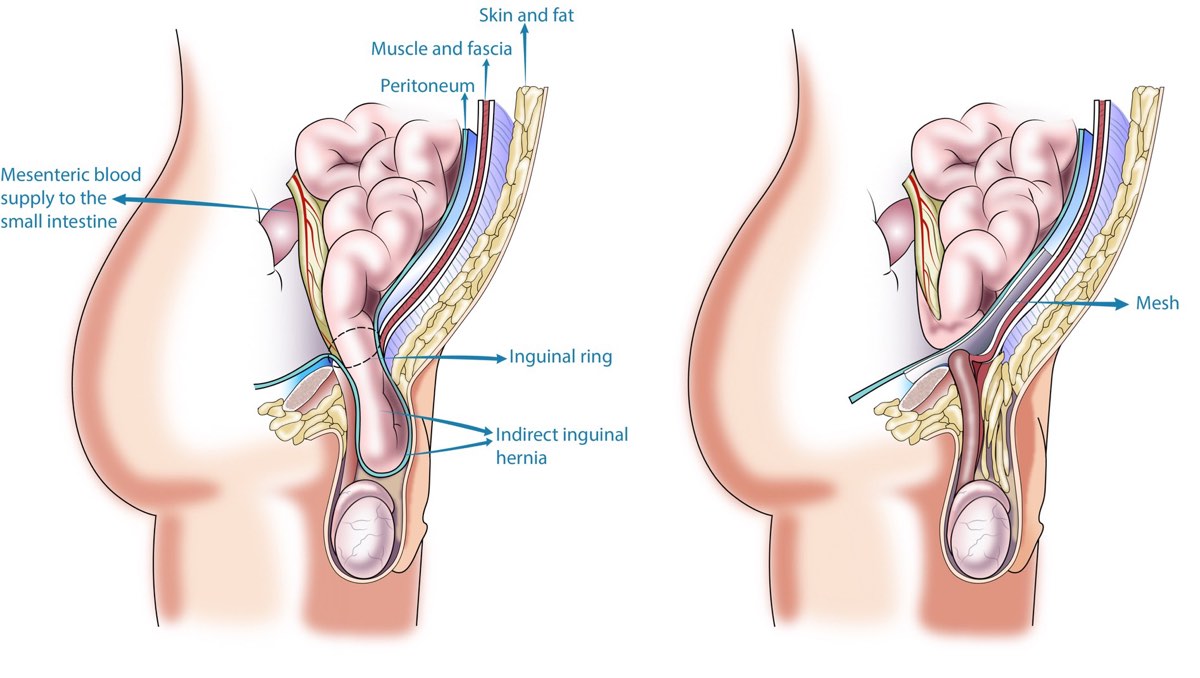Hernia Repair in Taipei
Search and Compare the Best Clinics and Doctors at the Lowest Prices for Hernia Repair in Taipei

Find the best clinics for Hernia Repair in Taipei
No pricing info available
Mexico offers the best prices Worldwide
Price: $ 260
From 128 verified reviews
ashley kauffman, 21 September 2020
At NTU hospital they are constantly processing high volumes of patients efficiently and with a happy attitude. I was in and out for my follow-up in less than 30 mins. Moreover, my previous recent experience in the ER department was very positive. All of the doctors and many of the staff can speak English. What’s more, they offer online appointment booking in English. The best place in Taiwan to go for any serious health concerns. The attitude of the staff is impressive considering how busy it gets.
From 136 verified reviews
Nana Hong, 18 September 2020
皮膚科彭家盈醫師問診親切仔細,五顆星是給她的
WHY US?
At Medijump, we're making medical easy. You can search, compare, discuss, and book your medical all in one place. We open the door to the best medical providers worldwide, saving you time and energy along the way, and it's all for FREE, no hidden fees, and no price markups guaranteed. So what are you waiting for?

Free

Best Price

Widest Selection

Risk-Free
What you need to know about Hernia Repair in Taipei

Hernia repair is a surgical procedure to correct a hernia – a condition when internal tissue or organ pushes through the muscle. It is typically performed when the hernia becomes strangulated, causes pain or discomfort, grows larger, or when the tissue becomes trapped in the abdominal wall.
What does a Hernia Repair Procedure Involve?
Hernia repair can be performed either with open surgery or laparoscopic surgery. Both are carried out under general anesthetic and involve returning the displaced organ or tissue to the body part that should contain it. Laparoscopic hernia repair surgery is preferred because it is minimally invasive and the recovery period is easier.
How Long Should I Stay in Taipei for a Hernia Repair Procedure?
You may need to stay in the hospital for one to three days, but you must not fly home right after you are discharged from the hospital. Plan to stay in the Taipei for around 7 to 14 days or until you get your surgeon's approval because traveling long-distance can lead to tearing of the sutures. You will attend a follow-up appointment during your stay to monitor your condition.
What's the Recovery Time for Hernia Repair Procedures in Taipei?
It may take around 3 to 6 weeks for a full recovery after open hernia surgery. Expect to take two weeks off work after the surgery. If you have laparoscopic surgery, you should be able to return to work and your normal routine within a week.
What sort of Aftercare is Required for Hernia Repair Procedures in Taipei?
Apply gentle pressure to your wound using your hand or a small pillow to make sneezing, coughing, and moving more comfortable. You can do some gentle exercises to help with the healing process, but avoid strenuous activities for around 4 to 6 weeks. Your surgeon will give you a set of instructions regarding your diet, caring for your wound, hygiene, and bathing. Make sure to follow all instructions.
What's the Success Rate of Hernia Repair Procedures in Taipei?
Hernia repair is proven to be effective and safe. Only around 11% of patients suffer from a recurrence following the surgery. Also, only 10 % to 12% of patients will experience chronic pain after surgery. Although the risks and side effects are rare, you still need to be aware of them. They typically include infection, blood clots, pain, and recurrence.
Are there Alternatives to Hernia Repair Procedures in Taipei?
If surgery is not an option for you, your alternative is to get non-surgical hernia treatments, such as wearing a corset, truss, or binder. They will keep the hernia in place and apply gentle pressure on it. Make sure to use them only under a doctor’s supervision.
What Should You Expect Before and After the Procedure
A hernia can be painful, uncomfortable, or even life-threatening. After a hernia repair, you no longer feel pain, discomfort, or any other symptoms. Your risk of becoming seriously ill has been reduced significantly.
Whilst the information presented here has been accurately sourced and verified by a medical professional for its accuracy, it is still advised to consult with your doctor before pursuing a medical treatment at one of the listed medical providers
No Time?
Tell us what you're looking for and we'll reachout to the top clinics all at once
Enquire Now

Popular Procedures in Taipei
Prices Start From $42

Prices Start From $4

Prices Start From $520

Prices Start From $520

Prices Start From $714

Recommended Medical Centers in Taipei for Hernia Repair

- Interpreter services
- Translation service
- Religious facilities
- Medical records transfer
- Medical travel insurance
- Health insurance coordination
- TV in the room
- Safe in the room
- Phone in the room
- Private rooms for patients available

- Interpreter services
- Translation service
- Religious facilities
- Medical records transfer
- Medical travel insurance
- Health insurance coordination
- TV in the room
- Safe in the room
- Phone in the room
- Private rooms for patients available

- Interpreter services
- Translation service
- Religious facilities
- Medical records transfer
- Medical travel insurance
- Health insurance coordination
- TV in the room
- Safe in the room
- Phone in the room
- Private rooms for patients available

- Interpreter services
- Translation service
- Religious facilities
- Medical records transfer
- Medical travel insurance
- Health insurance coordination
- TV in the room
- Safe in the room
- Phone in the room
- Private rooms for patients available

- Interpreter services
- Translation service
- Religious facilities
- Medical records transfer
- Medical travel insurance
- Health insurance coordination
- TV in the room
- Safe in the room
- Phone in the room
- Private rooms for patients available

- Interpreter services
- Translation service
- Religious facilities
- Medical records transfer
- Medical travel insurance
- Health insurance coordination
- TV in the room
- Safe in the room
- Phone in the room
- Private rooms for patients available

- Interpreter services
- Translation service
- Religious facilities
- Medical records transfer
- Medical travel insurance
- Health insurance coordination
- TV in the room
- Safe in the room
- Phone in the room
- Private rooms for patients available

- Interpreter services
- Translation service
- Religious facilities
- Medical records transfer
- Medical travel insurance
- Health insurance coordination
- TV in the room
- Safe in the room
- Phone in the room
- Private rooms for patients available

- Interpreter services
- Translation service
- Religious facilities
- Medical records transfer
- Medical travel insurance
- Health insurance coordination
- TV in the room
- Safe in the room
- Phone in the room
- Private rooms for patients available

- Interpreter services
- Translation service
- Religious facilities
- Medical records transfer
- Medical travel insurance
- Health insurance coordination
- TV in the room
- Safe in the room
- Phone in the room
- Private rooms for patients available
Hernia Repair in and around Taipei
About Taipei
Taipei City is the capital and one of the special municipalities of Taiwan. It is located in the northern part of the island in a basin between the Central Mountains and the Yangming Mountains. Characterized by friendly people and safe streets, this city is one of the most fascinating places to visit. It has an amazing history, delicious food, and a blend of Chinese culture with a fusion of Japanese, American, and Southeast Asian influences. While most visitors normally visit the city to indulge in its culture and go sightseeing, more and more people are traveling here to have medical treatment, due to the high-quality medical standards, professional teams, high-tech medical equipment, and reasonable prices.
Popular Parts of Taipei
Zhongshan and Datong are two of the most popular parts of Taipei. Zhongshan was once the financial and international business center of the city, and today, it still has plenty of hotels and eateries. Visitors can also find numerous excellent museums, Taipei Expo Park, and Taipei’s version of the London Eye called Miramar. Datong is one of the oldest parts of the city. It is known to be home to Taipei’s finest temples, such as the Confucius Temple, Bao’an Temple, and Xiahai City God Temple. Those who love shopping should go to Da’an, an important commercial and residential area in the city. It houses some of the city’s classiest shopping areas, as well as the most sophisticated bars and a beautiful park. Another popular area is Shilin, which is where the National Palace Museum is located.
Transport in Taipei
The primary international airport in Taipei is the Taiwan Taoyuan International Airport. It connects the city with various major cities around the globe, such as New York, Frankfurt, Tokyo, and Paris. Some budget airlines are operating from this airport, including AirAsia and Eastar Jet. To journey around, Taipei there is a very efficient, safe, and clean Mass Rapid Transit (MRT) system, which is called Metro Taipei. It has an extensive network and will get you to numerous areas around the city. Buses and taxis are also available. Buses are efficient and affordable, while taxis are the most flexible mode of transport.
Visas in Taipei
Citizens of 66 countries, including all EU countries, Australia, and the US, do not need a visa to visit Taipei for up to 90 days. Visa on arrival is available for nationals of Turkey. Taiwan’s Ministry of Foreign Affairs also provides an eVisa program for several countries, including the UAE and India.
Weather in Taipei
Summer (June to August) can be extremely hot and humid, with an average temperature of 27°C to 30°C. It is also the wet season and typhoons are a real possibility, rain decreases, and the temperature drops during autumn. Winter (December to February) is cold and dry, while spring is pleasant.
Additional Info
- Local Currency: The New Taiwanese Dollar (TWD) is the local currency and 1 USD is worth about 30 TWD.
- Money & Payments: ATMs are available in many parts of the city. Credit cards are accepted in hotels and upscale restaurants. It would be wise to always carry some cash. Tipping is not mandatory.
- Local Language: Mandarin Chinese is the official language and many people can speak English well.
- Local Culture and Religion: Buddhism and Taoism are the biggest religions, followed by Christianity, Yiguandao, and Tiandism.
- Public Holidays: Chinese New Year is the most important public holiday, which is celebrated for a week during February.
Popular Searches
- Plastic Surgery in Thailand
- Dental Implants in Thailand
- Hair Transplant in Thailand
- Breast Augmentation Thailand
- Gastric Sleeve in Thailand
- Gender Reassignment Surgery in Thailand
- Laser Hair Removal in Bangkok
- Botox in Bangkok
- Dermatology in Bangkok
- Breast Augmentation in Bangkok
- Coolsculpting in Bangkok
- Veneers in Turkey
- Hair Transplant in Turkey
- Rhinoplasty in Turkey
- Stem Cell Therapy in Mexico
- Rhinoplasty in Mexico
- Liposuction in Mexico
- Coolsculpting in Tijuana
- Rhinoplasty in Korea
- Scar Removal in Korea
- Gastric Sleeve in Turkey
- Bone Marrow Transplant in India
- Invisalign in Malaysia
- Plastic Surgery in the Dominican Republic
- Tummy Tuck in the Dominican Republic
- Plastic and Cosmetic Surgery in Poland
- Rhinoplasty in Poland
- Hair Implant in Poland
- Dental Implants in Poland
- IVF in Turkey

